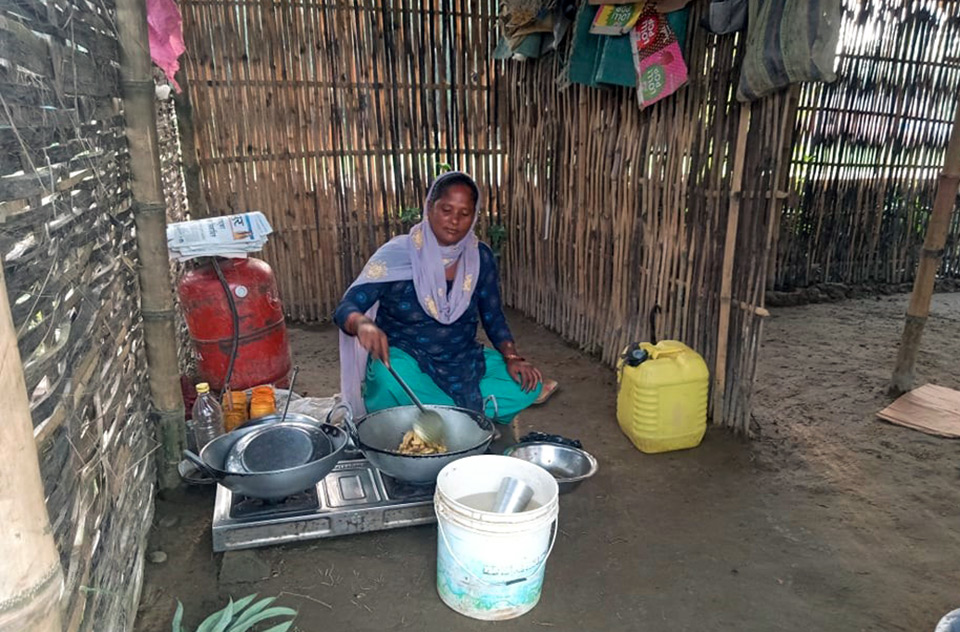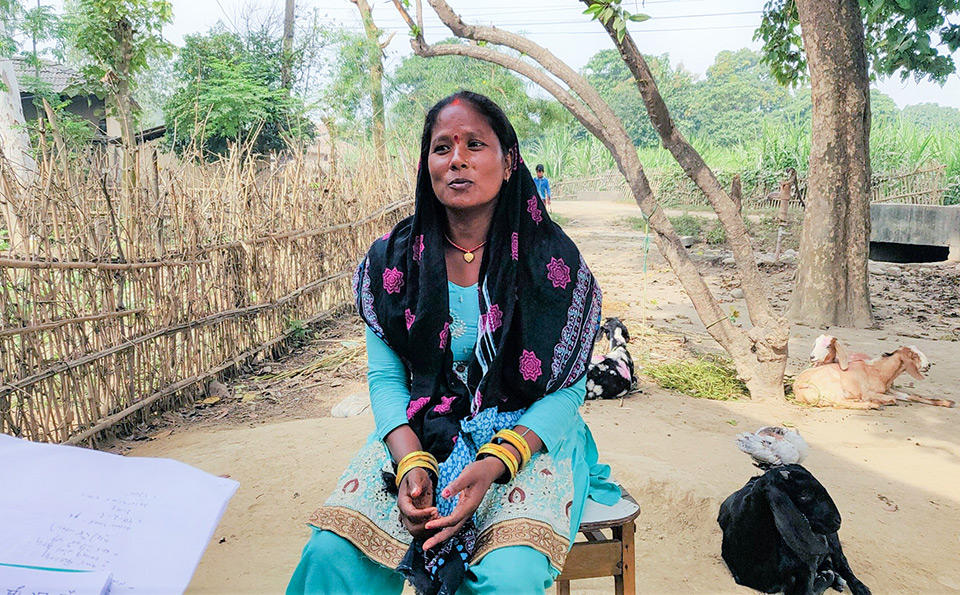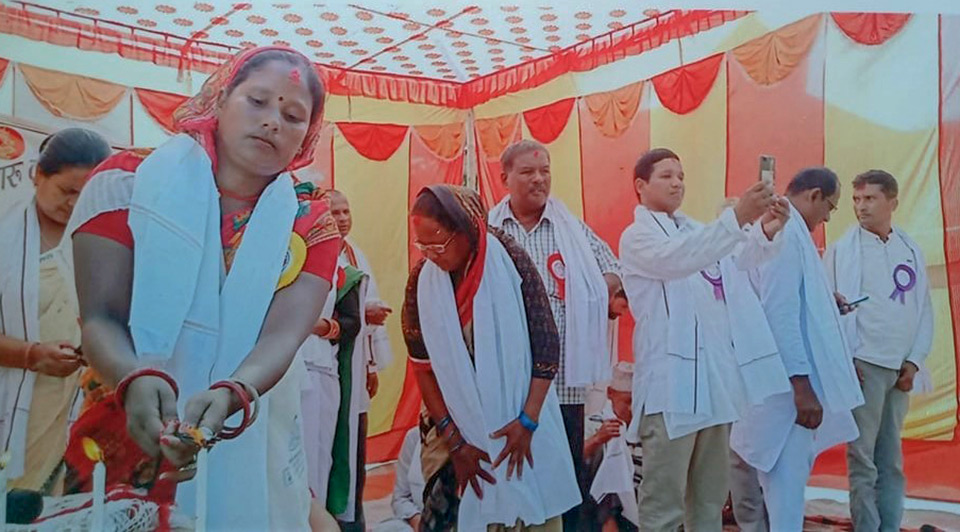A rural farmer’s inspirational journey to becoming a respected leader
Date:
Author: Sumiran Shrestha
Roshani Kumari Chaudhary is an inspiration to many in her village. For someone who made ends meet by working as a farmer and cooking meals for passersby sitting on a mud coated floor of a bamboo hut, she has certainly come a long way. She is now a community leader who commands respect and influence in her Municipality. She proudly shares, “I am now the Chairperson of a Jaldevi Women Farmer Group, a social activist and a member of the health community in my Municipality. I have even contested the local ward elections.”

35-year-old Roshani is married to a primary school teacher. She is also a mother of four children currently residing in Pipravita village, Barahathawa Municipality of Sarlahi district in Province 2. A farmer by profession, Roshani wanted to move ahead in life and help her family access a more comfortable life.
She was delighted when she heard that leadership trainings would soon be made available by Equal Access International, a partner of UN Women under the Joint Programme “Accelerating Progress Toward the Economic Empowerment of Rural Women in Nepal: A Joint Pilot Contributing to Implementation of the Agriculture Development Strategy (ADS) in Nepal” (JP RWEE). Along with like-minded women farmers, she participated in the training to increase knowledge on life and leadership skills. Delivered through six weekly sessions, the training covered topics such as meaningful citizen engagement, coalition building, women’s rights, negotiation skills and local level advocacy, issues including women's economic empowerment, and women's leadership roles. Roshani says that these weekly sessions have played a significant role in improving the lives of women farmers who attended the training including herself. She adds, “The knowledge and skills that I have gained from these training sessions have helped me overcome challenges in public speaking and negotiations. Most importantly, it has helped me raise my voice, speak up for my rights and do so for others as well.”

An earlier training on production of off-season vegetable cultivation was conducted to improve the economic status of women farmers under the same JP RWEE programme had introduced Roshani with women from the farming community. With newfound skills from the comprehensive leadership training, Roshani led these women farmers to successfully register themselves as the Jaldevi Women Farmer Group. She remarks, “We had to have several meetings with the ward office and Municipality to get ourselves registered. To add to my happiness, I was even appointed as the Chairperson.” Roshani did not have to wait too long to continue utilizing her training for good causes such as helping mediate concerns in community, including around domestic violence at the request of fellow community members. “The JP RWEE programme has enabled four UN agencies to come together and provide timely and relevant solutions in a holistic manner to rural women like Roshani. This has proved to be a boon for them,” says Rachana Bhattarai, Programme Officer at UN Women Nepal.

In early March, when Roshani heard of the COVID-19 outbreak in Nepal, she wondered if she should stay home or help the community. Having joined the health committee prior to the nationwide lockdown imposed by the Government, Roshani says, “Had it not been for the leaderships training, I would not have become a member of the health committee. I really didn’t have the leadership skills nor the confidence.” She adds, “I responded by informing community members about the preventive measures established by the Municipality to contain COVID-19. I helped by placing soaps at public handwashing stations and contributed to relief efforts by distributing masks and food items on behalf of the Municipality.”
Roshani shares that she has never felt prouder in her life. When asked about her plans for the future, she does not think twice and quickly quips, “I had contested the local elections earlier based on my learnings from the leadership training, but I wasn’t successful. I now plan to contend the elections again with proper planning so that I can serve my community.”
The Joint Programme “Accelerating Progress toward the Economic Empowerment of Rural Women in Nepal: A Joint Pilot Contributing to Implementation of the Agriculture Development Strategy (ADS) in Nepal” (JP RWEE) aims to secure rural women’s livelihoods and rights. The programme is a collaborative effort of the Food and Agriculture Organization of the United Nations (FAO), International Fund for Agriculture Development (IFAD), United Nations World Food Programme (WFP) and United Nations Entity for Gender Equality and the Empowerment of Women (UN Women). Funded by the Multi-Partner Trust Fund with support of the Kingdom of Norway and the Kingdom of Sweden, the joint programme is currently being implemented in Sarlahi and Rautahat districts of Province 2 under the leadership of the Ministry of Agriculture and Livestock Development (MoALD), Government of Nepal.